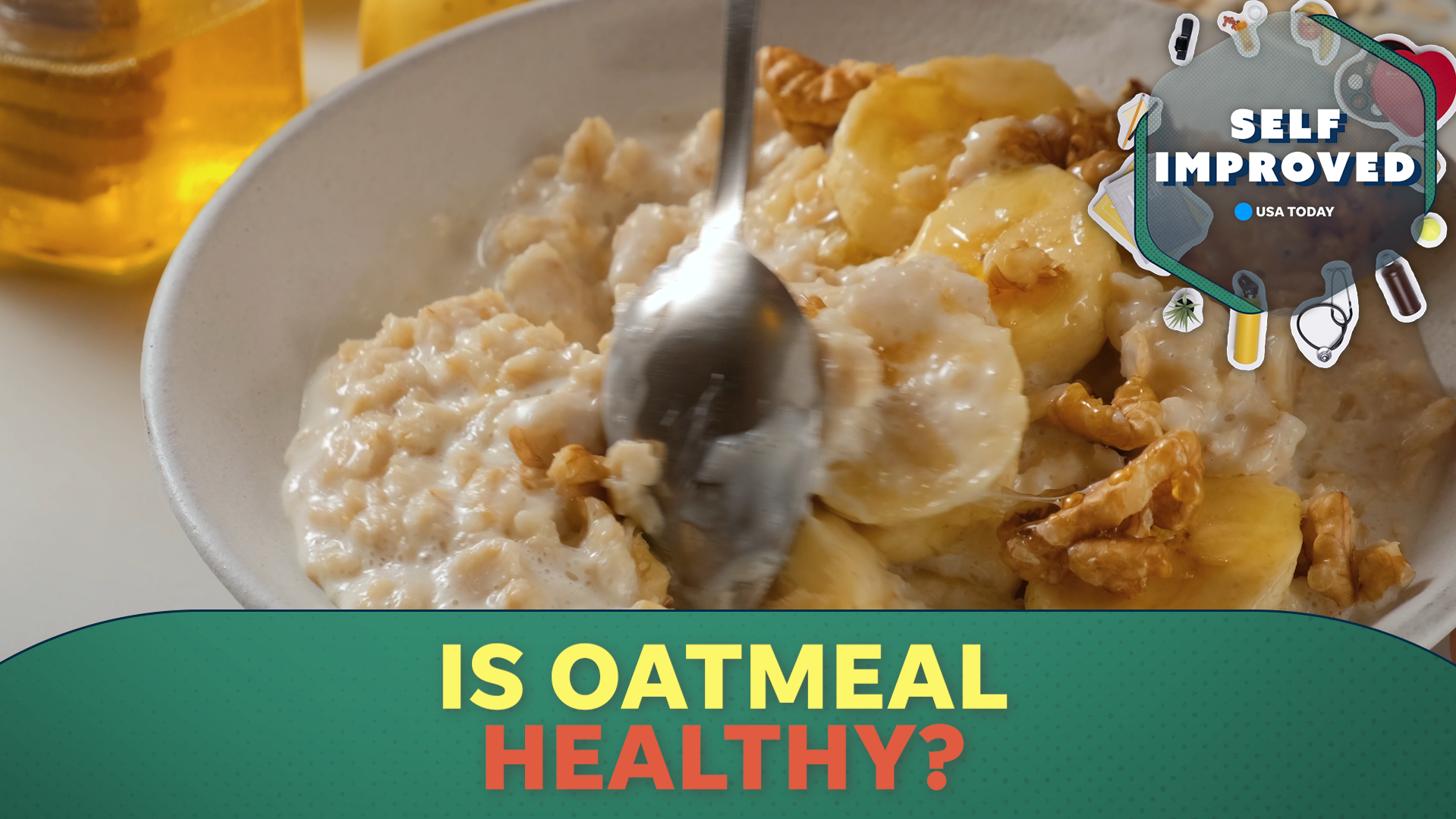
A dietitian explains the health benefits of oatmeal
Oatmeal is one of the most popular breakfast options, but how good is it for you? Registered dietitian Abbey Sharp explains.
You’ve probably heard health and nutrition experts emphasize the benefits of a healthy, balanced breakfast; It is not called the most important meal of the day for nothing.
But when you’re on the go, it can be difficult to find the time and motivation to plan and put together a meal that provides balanced nutrition. Could oatmeal be the solution?
According to a recent report from market research firm Wise Guy Reports, consumers are increasingly interested in purchasing whole grain oatmeal. And that interest is expected to rise even further – market researchers cited both rising health consciousness and increasing demand for convenient breakfast options.
Whether you’re interested in preparing an oatmeal-based baking product or overnight oats, or even want to quickly whip up old-fashioned oatmeal on the stovetop, here’s what nutritionists want you to know about adding oats to your regular meal rotation.
Are oats healthy?
The short answer: yes.
“Oats are a super nutritious food that can support digestion, heart health and even weight management,” registered dietitian Miranda Galati tells USA TODAY. “They contain a unique beta-glucan fiber that is particularly powerful for lowering cholesterol and improving blood sugar control.”
If you want to specifically target blood sugar levels, you can opt for groats (whole oat grains with only the inedible husks removed) or steel-cut oats (oat groats cut into smaller pieces), both of which take longer to work. digest and therefore have a lower glycemic index compared to rolled, old-fashioned (steamed, rolled and flattened oat groats) or instant oats (oat groats steamed and flattened for an extended period of time), according to the Harvard TH Chan School of Public Health.
Oatmeal falls under the category of whole grains, which as a whole contain more fiber, protein and micronutrients compared to refined grains. (Although refined grains, such as white rice and white bread, still provide some beneficial nutrients as well.)
The United States Department of Agriculture (USDA) recommends getting half of your daily grain intake from whole grains. While eating more “minimally processed grains” is a good thing, Galati says, “it’s not necessary 100% of the time.”
More: Is oatmeal good for weight loss?
What is the healthiest breakfast?
Most dietitians will tell you that the term “healthiest” is subjective; it can vary depending on you, your body and your health goals.
That said, oats are “definitely one of the most nutritious breakfast foods,” says Galati. She recommends making them an even better breakfast option by combining them with other nutritious ingredients to make them “more filling and blood sugar friendly.”
Is orange juice good for you? Why one woman’s ‘fruitarianism’ diet is causing controversy
“The carbohydrates in oats are best paired with a source of protein, fat, and even some extra fiber for better blood sugar response,” she says. “Cook your oats in high-protein milk such as dairy or soy, serve with berries and add a spoonful of nut butter. You can even stir in some egg whites or protein powder for a higher protein option.”
Overall, Galati wants to remind consumers that there is no one-size-fits-all approach to healthy eating.
“The healthiest food in any category will depend on you, your budget, your culture, your health goals and much more,” she previously told USA TODAY. “It’s amazing to make more nutritional choices whenever possible, but choosing the more processed or convenient option isn’t always a bad thing either. As a registered dietitian who wants you to build a healthy lifestyle that will last, I encourage you to ditch the idea that there is a healthiest version of anything.


